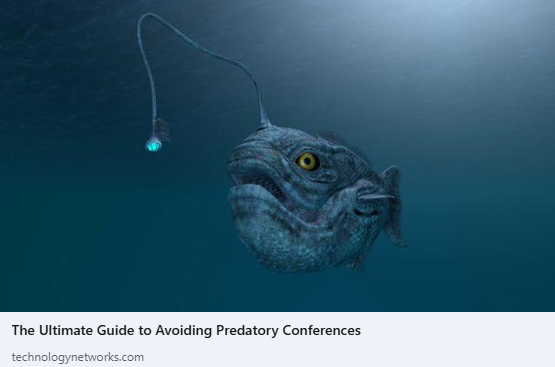What are they and how do you spot them?
Unfortunately, some organisers create predatory conferences designed simply to make money rather than further scientific endeavour. When choosing where to submit posters and abstracts, or attending as a delegate or speaker, you need to be assured of the quality of a conference. So how do you know if it is going to be good or not?
There are several obvious and some more subtle signs that a conference won’t live up to its promises, and things you can do to check before wasting any money:
- Ask colleagues if they know of the event, or if someone you know can recommend it.
- Use trusted sources of information – such as ACNR’s online calendar of events. We check our event listings before publication. See https://acnr.co.uk/event/
- Check who is organising the conference – Google them if you don’t recognise the company or association.
- Conference website: look out for poor design and spelling mistakes.
- Scientific programme – is this focused, or does it contain an excessively large breadth of different topics to be covered in a short time frame?
- Scientific programme committees – Is there one? Do you recognise the majority of individuals as being well known in the field being discussed?
- Is the branding consistent throughout the website and social media?
For more advice, read “The Ultimate Guide to Avoiding Predatory Conferences” by Ruairi J Mackenzie at https://lnkd.in/e-mzkfQQ This gives a good overview and looks at conferences in the neuroscience field. There is also a link to a separate article describing the author’s experience of attending one of these conferences.
